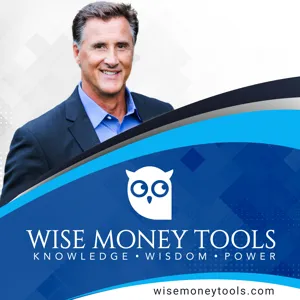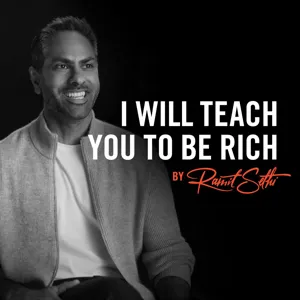Podcast Summary
JPMorgan's $2 billion loss from a flawed hedging strategy: Despite the complexity and oversight of large financial institutions, significant financial mistakes can still occur, underscoring the importance of effective risk management.
Even large and established institutions like JPMorgan Chase can make significant financial mistakes, leading to substantial losses. In the case of JPMorgan, a flawed and poorly executed hedging strategy resulted in a $2 billion loss. This serves as a reminder that even the most experienced and successful players in the financial industry are not immune to errors and the importance of effective risk management and oversight. Despite the significant loss, the market did not respond as severely as one might expect, given the track record of Jamie Dimon and JPMorgan in managing through the financial crisis. It's important to keep in mind that the financial markets are complex and constantly evolving, and unexpected events can have significant impacts on even the largest institutions.
London Whale trade and its impact on JPMorgan: Despite success, financial institutions can make costly mistakes leading to significant losses. Diversification and considering alternative banking options may mitigate risks.
Even the most successful and well-managed financial institutions can make costly mistakes, as evidenced by JPMorgan's experience with the London Whale trade. This event, which occurred in London, led to parasitic trading by other hedge funds, ultimately resulting in significant losses for JPMorgan. Despite the magnitude of the loss, some argue that CEO Jamie Dimon should not have resigned due to the bank's overall success and resilience during the financial crisis. However, incidents like these underscore the importance of bank regulation. Jamie Dimon's defensive stance on financial regulations, such as the Volcker rule, may have been weakened by this mistake. For investors seeking exposure to the financial sector without the risk of individual company missteps, diversification through ETFs or mutual funds may be a prudent strategy. Additionally, smaller, less "Wall Street"-type banks, like US Bancorp, or foreign banks, such as Bank of Nova Scotia, could be viable alternatives.
Berkshire Hathaway investing 2.5 billion in Avon deal: Buffett, despite health challenges, is open to large investments and may be interested in infrastructure or industrial companies.
Warren Buffett's Berkshire Hathaway is investing 2.5 billion dollars in the Avon deal, but this may not significantly change the outcome for Avon's management if they still believe the deal undervalues their company. Avon's new CEO, Cherilyn McCoy, might consider taking the offer and moving on, especially given Berkshire's involvement. Buffett, who is still active and sharp despite his health challenges, mentioned during Berkshire's annual meeting that he had recently considered a 22 billion dollar acquisition and is open to large investments. This could indicate a potential interest in capital-intensive infrastructure or industrial companies. Despite the large investment, Buffett has consistently signaled his intent to put Berkshire's capital to work rather than returning it to shareholders.
Different Fates for Tech Companies: Cisco's stock dropped due to longer sales cycles and execution issues, while Intel gained from enterprise success. Electronic Arts suffered from subscriber losses and execution problems, but Activision Blizzard reported strong earnings and raised guidance.
While tech companies like Cisco Systems and Electronic Arts reported earnings this week, their stock performances were vastly different. Cisco's stock dropped 8% due to longer sales cycles and execution issues, while Intel's continued success in the enterprise market contributed to a 4% gain. On the other hand, Electronic Arts saw a 24% decrease in subscribers for their new Star Wars game, Star Wars: The Old Republic, due to numerous glitches and execution problems. In contrast, Activision Blizzard reported strong earnings, beating estimates, raising guidance, and repurchasing shares, leading to a 4% increase in their stock price. Despite these positive numbers, Activision's stock remains stagnant due to concerns about the future of the gaming industry, particularly the stagnation of World of Warcraft and the need to continually produce new hits.
Companies with diverse business portfolios like Disney and Textainer can deliver strong financial results: Disney's theme parks and cable TV channels, Textainer's container leasing, and Cisco's networking business are driving solid financial performance for their respective companies
Despite some past missteps, companies with diverse business portfolios, like The Walt Disney Company, can continue to perform well and deliver strong financial results. Disney's recent 21% increase in profits was driven by strong numbers from their theme parks and cable TV channels, including ESPN and ABC. While some investors may be hesitant about the company's next blockbuster, the success of properties like Avengers and the continued growth of their other businesses make Disney an attractive investment option. Additionally, companies that own and lease shipping containers, like Textainer (TGH), can also provide solid returns as they benefit from the ability to match shipping routes and maximize the use of their containers. Another notable mention is Cisco (CSCO), which, despite being in the technology sector, could be a potential investment opportunity due to its relatively low valuation and promising networking business.
Investing in the Shipping Container Industry and ExxonMobil: The shipping container industry offers stable yields and potential for eco-housing projects, while container leasing companies may be less volatile than pure shippers. Markel, a specialty insurer, provides stable premiums and long-term investments. ExxonMobil, despite challenges, remains a significant player in the oil industry and a worthy investment study.
The shipping container industry presents an intriguing investment opportunity, offering decent yields, relatively low competition, and the potential for eco-friendly housing projects. However, it's important to note that while the industry is economically sensitive to oil prices, container leasing companies may be less volatile than pure shippers. Markel, a specialty insurance company, is another attractive investment option due to its focus on niche markets like boats, bars, and even horse ranches, providing stable premiums and long-term investments. ExxonMobil, the largest US-headquartered corporation and most durable oil company, has faced significant challenges, including the aftermath of the Exxon Valdez oil spill, which led to increased regulation and scrutiny. Despite these challenges, ExxonMobil remains a significant player in the industry and a worthy subject of study for investors.
ExxonMobil's Response to the Exxon Valdez Oil Spill: Modernizing Operations and Rebuilding Reputation: ExxonMobil responded to the Exxon Valdez oil spill by developing the Operations Integrity Management System (OIMS) to prevent human error and automate global systems, recognizing the importance of a good corporate reputation to attract talent and face favorable jury verdicts, and using the crisis as an opportunity to modernize operations.
The ExxonMobil oil spill from the Exxon Valdez in 1989 led the company to undergo significant reforms, including the development of the Operations Integrity Management System (OIMS), in an attempt to prevent human error and automate their global systems. ExxonMobil leaders recognized the importance of maintaining a good corporate reputation, despite their unpopularity with the public due to factors beyond their control, such as gas prices. However, they acknowledged that their reputation could impact their ability to attract top talent and face unfavorable jury verdicts. The company even looked to history to find examples of popular oil companies but struggled to find any, given the public's association of oil companies with high energy prices and concentrated power. Ultimately, the ExxonMobil leadership saw the crisis as an opportunity to modernize their operations and improve their reputation.
Oil companies' main revenue sources are not retail gasoline sales: Oil companies generate most of their revenue from producing and selling oil wholesale and from the chemicals business, not from retail gasoline sales, but they cannot abandon their retail presence due to brand value and societal presence.
Despite popular belief, oil companies like ExxonMobil make the least profit from retail gasoline sales. Instead, their primary sources of revenue come from producing and selling oil wholesale and from the chemicals business. However, these companies cannot easily abandon their retail gasoline presence due to the value and presence of their brands in society. Lee Raymond, former CEO of ExxonMobil, was known for his blunt demeanor and effective leadership, earning him the nickname "Iron Ass." His successor, Rex Tillerson, while effective in his own right, is less confrontational and more diplomatic in his approach. Despite their differences, both leaders faced the challenge of balancing corporate profitability with public perception.
ExxonMobil's New Direction: A New CEO and Focus on Natural Gas: ExxonMobil hired a new CEO, Rex Tillerson, to improve public image and communication skills. They shifted focus to natural gas, bought XTO to become largest US producer, but face challenges with profitability and PR in fracking
ExxonMobil, under pressure from its Board of Directors and other constituents, sought to change its public image and tone by hiring a more affable CEO, Rex Tillerson, in 2006. The oil industry is heavily regulated and needs partners in government and business, making effective communication crucial. ExxonMobil also shifted its focus towards natural gas, particularly unconventional gas extracted through fracking, which is becoming increasingly prevalent in free market countries. After initially missing out on the trend, ExxonMobil bought the largest producer of unconventional gas in the US, XTO, in 2010, making it the largest producer of unconventional natural gas in the country. However, producing gas may not be as profitable as oil production, and fracking poses significant PR challenges due to concerns over its potential impact on American land, drinking water supplies, and earthquakes.
Navigating the challenges of the carbon capture and storage industry for ExxonMobil: ExxonMobil, a major player in the carbon capture and storage industry, faces challenges in navigating the evolving regulatory landscape and politics. Its size and durability make it a long-term contender, but the shift towards renewable energy remains a contentious issue.
The emerging carbon capture and storage industry in the United States is in its infancy, with many unknowns and varying approaches among operators. ExxonMobil, a major player, faces challenges in navigating the evolving regulatory landscape and politics. Comparing ExxonMobil to Apple, they share similarities as closed systems and command management, but differ in their approach to creativity and partnerships. ExxonMobil's size and durability make it a long-term contender, but the shift towards renewable energy due to global warming risks remains a contentious issue. My biggest shift in thinking about the oil and gas industry since researching this book is the realization of the deep-rootedness and complexity of the fossil fuel economy on a global scale. The main reason for transitioning away from oil and gas is the serious threat of global warming, but there is not yet a consensus on this issue.
Transitioning to a post-oil economy: A complex issue: The transition away from an oil economy is complicated by widespread use and increasing consumption in developing countries
Transitioning away from an oil economy on a global scale is a massive undertaking due to the widespread use of fossil fuels in everyday life. This transition is further complicated by the rising middle classes in countries like China and India, whose increasing consumption of fuel for transportation and household appliances makes the energy economy deeply ingrained. The book "Private Empire: ExxonMobil and American Power" provides insights into this complex issue. Additionally, it's worth noting that some of the best business writing of 2012 will be featured in a new book published by Columbia University. Notable authors include Pulitzer Prize winner Steven Perlstein, Warren Buffett, and our own Morgan Housel. Morgan's latest ebook, "50 years in the making: The great recession and its aftermath," is available for just 99¢ on Amazon. Overall, the challenges of transitioning to a post-oil economy and the importance of understanding the business world are significant topics that require thoughtful analysis and insightful writing.





